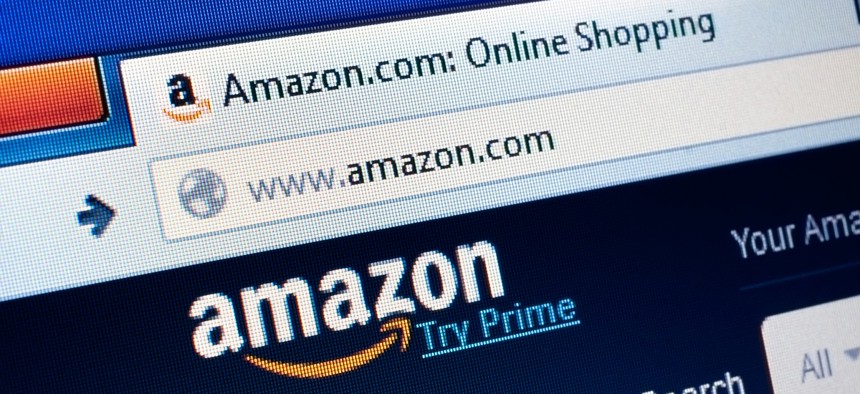Amazon Could Replace CAPTCHA With a Turing Test You’re Meant to Fail

Evan Lorne/Shutterstock.com
Amazon could soon rely on our little mistakes to prove we’re human.
Here’s the great thing about humans: We make mistakes.
As programmers get better at building bots that can perfectly recognize obscured letters or find all the pictures containing a rowboat, Amazon could soon rely on our little mistakes to prove we’re human. A patent awarded to Amazon in early August describes a kind of inverse Turing test, in which humans would be more likely to fail than methodical, logical robots.
“Computers can be programmed to correctly solve complex logic problems, or at least provide reliably and/or predictably incorrect answers to such problems,” the patent reads. “It is unlikely that a bot could be programmed to intentionally answer the question or challenge in the same manner as a human user, because predictably reliable inconsistent performance is a uniquely human characteristic…”

Amazon’s patent envisions the software looking a lot like the CAPTCHAs (Completely Automated Public Turing test to tell Computers and Humans Apart) we have today, popups or pages that you have to complete before continuing to buy a product, except with a wider degree of challenges based on psychological missteps we’re wired to make. Amazon writes that a user might have to look at an optical illusion and decide what it depicts, or quickly count the number of times a specific letter appears in a sentence.

An example in the patent shows the sentence, “Finished files are the result of years of scientific study combined with the experience of years,” with a prompt for the user to read the sentence once and then write how many “F”s it contains. (Try it!) Apparently Amazon has found that humans are bad at counting Fs, because the example shows that if a person answers correctly (six) then they must be a bot.
This is just a patent, and companies patent technologies that they don’t necessarily put into production all the time. Still, it’s interesting to think that Alexa might ask you a riddle before it processes that order of toothpaste one day.
NEXT STORY: Which Digital Assistant Reigns Supreme?





